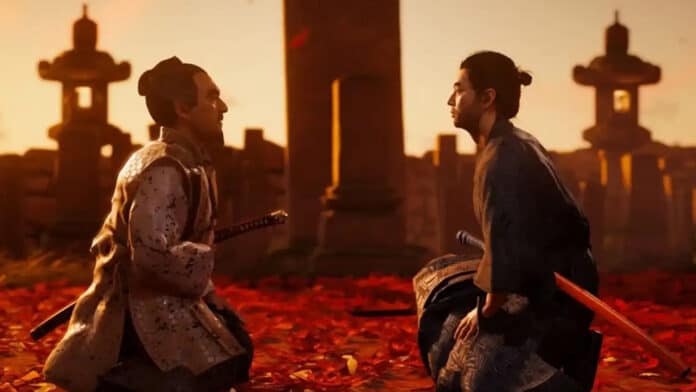Ghost of Tsushima, developed by Sucker Punch Productions, is a critically acclaimed action-adventure game that immerses players in feudal Japan during the Mongol invasion. At the heart of this epic narrative is the complex relationship between Jin Sakai and his uncle, Lord Shimura.
The climactic showdown between the two characters serves as a focal point in the game’s story, exploring themes of honor, loyalty, and personal sacrifice.
In this article, we will provide a comprehensive analysis of the battle and the emotional undercurrents that make the Jin vs. Lord Shimura confrontation in Ghost of Tsushima so impactful.
Setting the stage
Jin Sakai, the protagonist of Ghost of Tsushima, begins his journey as a samurai loyal to the code of honor, or “Bushido,” taught to him by his uncle, Lord Shimura.
However, as the Mongol invasion threatens Tsushima, Jin realizes that traditional samurai tactics are ineffective against the ruthless invaders led by Khotun Khan. This realization leads to a fundamental conflict between Jin’s sense of duty and the evolving needs of his people.
Lord Shimura, on the other hand, remains staunchly committed to the samurai code, and he struggles to accept Jin’s departure from tradition.
He believes that Jin’s actions, which include adopting stealthy, unconventional tactics to combat the Mongols, bring disgrace to the samurai legacy.
The conflict
Honor vs. necessity: The central theme in Ghost of Tsushima revolves around the clash between the rigid samurai code of honor and the practicality of adapting to changing circumstances.
Jin is torn between his duty to his uncle and the desperate need to protect Tsushima through any means necessary.
Legacy and Tradition: The struggle between Jin and Lord Shimura reflects the tension between preserving tradition and adapting to the demands of the present.
It underscores the idea that clinging to tradition at all costs can lead to stagnation and failure.
Personal sacrifice: Both characters face personal sacrifices and moral dilemmas throughout the game.
Jin must grapple with the consequences of his actions on his family’s legacy, while Lord Shimura is torn between his loyalty to his nephew and his commitment to the samurai code.
The climactic battle
The final confrontation between Jin and Lord Shimura takes place in a snowy field, symbolizing the cold and unforgiving nature of their conflict. The battle is not only a physical one but also a culmination of their ideological clash.
Their face-off is emotionally charged, with both characters expressing their deep-seated beliefs and feelings.
Lord Shimura sees this as an opportunity to bring Jin back into the fold of tradition, while Jin is determined to protect his people at any cost.
Players are given a choice during the battle, allowing them to decide the fate of Lord Shimura. This decision is a powerful reflection of Jin’s character growth and the player’s personal investment in the story.
The battle serves as a symbolic representation of the larger conflict within the game, as well as a reflection of Jin’s internal struggle. It showcases the evolution of Jin’s character from a traditional samurai to the “Ghost of Tsushima.”
In conclusion
The confrontation between Jin and Lord Shimura in Ghost of Tsushima is not just a climactic battle; it is a deeply meaningful and emotionally resonant moment in the game’s narrative.
It encapsulates the overarching themes of honor, loyalty, and adaptation to change.
The player’s involvement in the outcome of this battle reinforces the game’s exploration of personal sacrifice and the consequences of one’s choices.
Ultimately, the Jin vs. Lord Shimura conflict is a testament to the storytelling prowess of Ghost of Tsushima, making it a powerful and unforgettable gaming experience that leaves players contemplating the complexities of honor and duty in a changing world.

